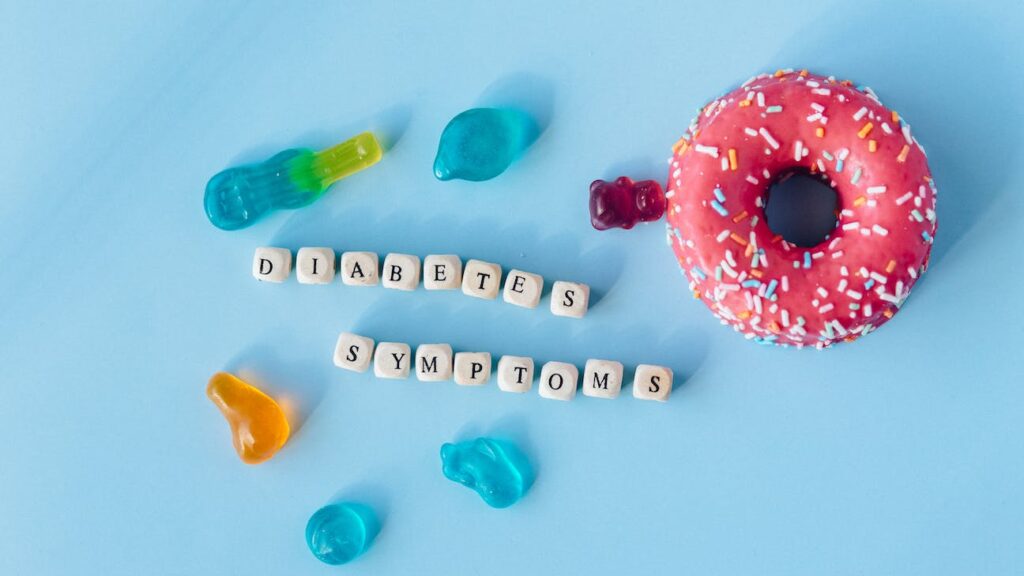Evidence Based
This article relies on solid scientific evidence, authored by experts, and thoroughly fact-checked by specialists.
Our team of licensed nutritionists and dietitians strives to maintain objectivity, impartiality, and honesty. We aim to present a fair representation of both sides of the argument.
Scientific references are included throughout this article. The numbers in parentheses (1, 2, 3) are clickable links to peer-reviewed scientific papers. These sources further support the information provided.

Diabetes, a chronic metabolic disorder, affects millions worldwide. It’s a condition where the body’s ability to regulate blood sugar levels is compromised. While diabetes management has made significant strides, uncontrolled diabetes remains a serious concern.
Type 2 diabetes becomes more prevalent as individuals grow older, generally presenting after 45 years of age. The symptoms of type 2 diabetes often develop slowly over time. As a result, many people remain unaware that they have type 2 diabetes and therefore do not take steps to manage the condition. With type 2 diabetes, the body is unable to use insulin correctly. Eventually, the body’s ability to produce insulin may become impaired as well (1
Centers for Disease Control and Prevention
Governmental authorized data source
Go to source ).
Many factors can contribute to uncontrolled diabetes. Even when someone diligently follows their doctor’s instructions regarding insulin use and lifestyle habits, their blood sugar levels may remain higher than ideal. In these situations, simply adjusting the current treatment plan may not be enough. The doctor will need to work with the patient to determine if modifying the treatment regimen, such as altering medication doses or prescribing additional drugs, could help gain better control of blood glucose levels. Achieving optimal control can be a collaborative process that requires fine-tuning under a physician’s supervision (2
PubMed Central
Highly respected database from the National Institutes of Health
Go to source ).
Uncontrolled diabetes can silently wreak havoc on the body, leading to severe complications. In this comprehensive guide, we’ll explore the ten subtle yet crucial signs that might indicate uncontrolled diabetes.
1. Excessive Thirst and Frequent Urination
Experiencing an unquenchable thirst and needing to visit the restroom more frequently than usual could be early indicators of uncontrolled diabetes.
Typically, individuals typically expel approximately 1–3 quarts of urine per day. However, in instances of untreated diabetes, an individual may excrete as much as 20 quarts of urine daily (3
National Institute of Diabetes and Digestive and Kidney Diseases
Governmental authority
Go to source ).
Elevated blood sugar levels can cause the kidneys to work overtime, leading to excessive urination and subsequently triggering thirst.
2. Unexplained Weight Fluctuations
Sudden weight loss, despite maintaining regular eating habits, can be a sign of uncontrolled diabetes. This happens because the body begins to break down muscle and fat for energy due to the lack of proper glucose utilization.
Summary
Sudden weight loss despite normal eating could indicate uncontrolled diabetes, as the body resorts to breaking down muscle and fat for energy.
3. Constant Fatigue
Do you find yourself feeling chronically tired even after a good night’s sleep? Uncontrolled diabetes can affect your energy levels. Elevated blood sugar levels can hinder the body’s ability to convert glucose into energy, leaving you feeling perpetually fatigued.
4. Blurred Vision
Diabetes can affect the blood vessels in the eyes, causing them to swell and distort vision. If your vision becomes increasingly blurred, it’s crucial to consider the possibility of uncontrolled diabetes and seek medical attention.
Summary
Blurred vision may signify uncontrolled diabetes, which can damage blood vessels in the eyes and impair vision.
5. Slow-Healing Wounds
Elevated blood sugar levels can impair blood circulation and damage nerves. This can lead to slower healing of wounds and a heightened risk of infections. If you notice that cuts and bruises are taking longer than usual to heal, it’s worth discussing with a healthcare professional.
6. Tingling Sensations and Numbness
Uncontrolled diabetes can cause peripheral neuropathy – a condition where nerves in the extremities are damaged. This may result in tingling sensations, numbness, or even pain in the hands and feet. Pay attention to any unusual sensations, as they could be indicative of poorly managed diabetes.
7. Frequent Infections
High blood sugar levels can weaken the immune system’s ability to fight off infections. People with uncontrolled diabetes might experience recurrent infections, particularly in the urinary tract, skin, and gums. If infections become a common occurrence, it’s essential to address the underlying cause.
Summary
Recurrent infections might point towards uncontrolled diabetes, as elevated blood sugar weakens the immune system’s ability to combat infections effectively.
8. Increased Hunger
While uncontrolled diabetes can lead to weight loss, some individuals might experience paradoxical hunger due to the body’s inability to use glucose effectively. This can result in an increased appetite, coupled with weight loss, serving as a contradictory yet significant sign of uncontrolled diabetes.
9. Irritability and Mood Swings
Fluctuations in blood sugar levels can impact mood stability. Individuals with uncontrolled diabetes might experience irritability, mood swings, and even episodes of anxiety or depression. Recognizing these emotional shifts can help in identifying the need for diabetes management.
10. Dry, Itchy Skin
Uncontrolled diabetes can cause the skin to become dry and itchy. Elevated blood sugar levels can lead to dehydration, contributing to skin discomfort. Moreover, poor blood circulation can prevent the delivery of essential nutrients to the skin, exacerbating the problem.
In conclusion, uncontrolled diabetes is a stealthy adversary, often showing subtle signs that are easy to overlook. Recognizing these indicators and taking timely action is essential to prevent further health complications. If you or someone you know is experiencing these signs, seeking medical advice and adopting a comprehensive diabetes management plan can make a significant difference in managing the condition effectively.
Remember, diabetes management involves a holistic approach that includes a balanced diet, regular physical activity, monitoring blood sugar levels, and adhering to prescribed medications. Prioritizing your health and being vigilant about these signs can empower you to take control of your well-being and lead a fulfilling life despite diabetes.




